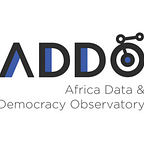What Nigeria’s 2023 elections tell us about info manipulation
The proliferation of disinformation tactics during the elections fueled hate and social divisions.
During the 2023 elections in Nigeria, The Cable found that politicians and their supporters employed disinformation tactics on social media to manipulate public opinion and promote certain political candidates.
These tactics included spreading fake news, misrepresenting information, and creating false endorsements. The three leading political parties in the country were involved in perpetuating disinformation campaigns. Such practices fueled intolerance, caused social division, and undermined the credibility of the electoral process.
Why It Matters:
Disinformation in elections can severely affect democratic processes, leading to public confusion, biased decision-making, and a breakdown of trust in the political system. It is crucial to be aware of and address such tactics to safeguard the integrity of elections and maintain a healthy democracy.
🧠What’s Happening:
- False Quotes: Viral posts spread false quotes attributed to prominent figures, like the claim that Ayo Adebanjo advocated for the secession of the Igbo people if they don’t want an Igbo president, which was later debunked.
- Misrepresentation of Roles: Atiku Abubakar, a presidential candidate, falsely claimed to have led the economic management team during Olusegun Obasanjo’s tenure when, in fact, it was Ngozi Okonjo-Iweala who led the team.
- Fake Endorsements: False endorsements were attributed to figures like Seun Okinbaloye of Channels Television and Evelyn, the late wife of TB Joshua, in support of specific candidates.
🔍 Between the Lines: The Cable’s investigation found that the spread of false information was often amplified by connected social media accounts, some of which were linked to the Indigenous People of Biafra (IPOB) propaganda showing a coordinated effort to manipulate public perception. IPOB is a nationalist separatist group in Nigeria that aims to restore the Republic of Biafra, a country which seceded from Nigeria before the Nigerian Civil War and later rejoined Nigeria after its defeat by the Nigerian military. These accounts used copy-pasting techniques to amplify disinformation, enabling false claims to reach a wider audience rapidly.
🏃 Catch Up Quick:
During the 2023 Nigerian elections, The Cable spotted disinformation campaigns targeting the public, using tactics like spreading false quotes to manipulate public opinion about candidates and parties. The campaigns also included misrepresenting individuals’ roles to boost the image of certain candidates and creating fake endorsements to drive support for specific political figures.
🖼️ The Big Picture:
Disinformation, if left unchecked, can seriously undermine the democratic process, leading to biased decision-making and a fractured society. Addressing the spread of false information, promoting media literacy and critical thinking are crucial steps to protect the integrity of elections and strengthen democracy.
💭 Our Take:
The rise of disinformation in elections highlights the need for a collective effort from governments, tech companies, civil society, and individuals to combat the spread of false information. Fact-checking and promoting media literacy are vital to empower citizens to make informed choices and safeguard democratic principles.
Read the full report here.
This article was published in The Cable news publication in Nigeria and produced in partnership with the African Academy for Open Source Investigations (AAOSI) mentorship programme focused on tackling disinformation undermining democracies as part of an initiative by the International Centre for Journalists (ICFJ) and Code for Africa (CfA). This summary was compiled by Lujain Alsedeg.
